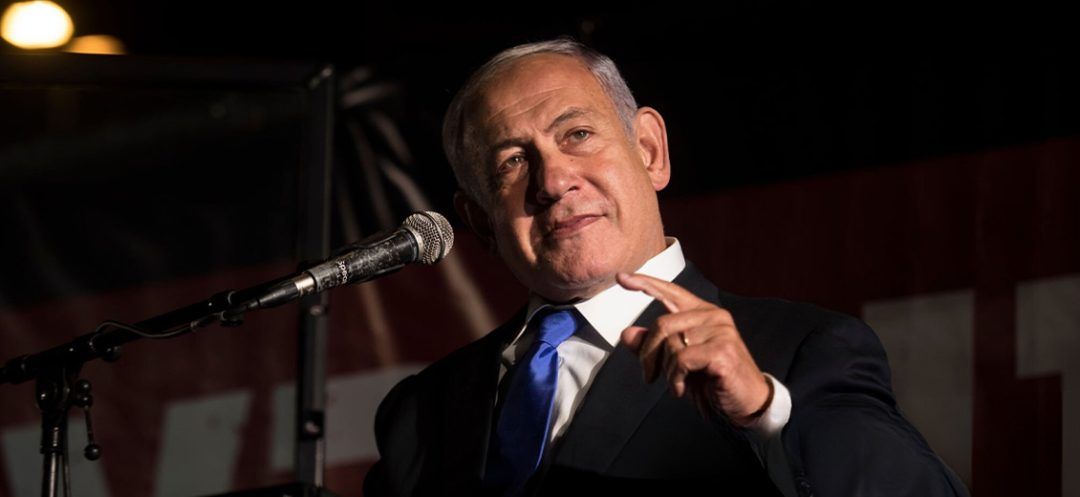- Home
- War in the Middle East
- Netanyahu's Washington Visit: Who Benefits Most?

Israeli Prime Minister Benjamin Netanyahu's upcoming three-day visit to Washington scheduled for July 24 is among the most significant Israeli visits to the strategic United States ally. This visit is crucial not only because it occurs at a pivotal moment in their strong relationship – despite the Democratic anger against Netanyahu and readiness to boycott and protest his visit – but also due to its timing right before the US presidential elections. Both sides may use this visit to play potentially winning cards in their exchanges, especially considering the backdrop of the Gaza war.
In fact, a diplomatic observer describes the visit as pivotal for the “fate” of Joe Biden's presidential campaign, and critical for Netanyahu's political future and the outcome of the war in Gaza. Prior to the visit, Netanyahu informed Biden in a goodwill gesture that he decided to send a delegation to Doha to discuss a ceasefire proposal in Gaza with representatives from Hamas and the US through indirect negotiations. This decision follows Hamas's flexible and positive response to proposed ceasefire ideas. A Hamas delegation visited Hezbollah’s Secretary-General Hassan Nasrallah to update him on the latest ceasefire developments, and the Islamic Jihad announced it would halt hostilities once a ceasefire is declared in Gaza.
Alongside these positive developments, the White House sent President Joe Biden's senior advisor Amos Hochstein to Paris, where he met with officials to discuss joint efforts to restore calm in the Middle East. “Both countries are striving to diplomatically resolve the current conflict along the Blue Line in southern Lebanon, aiming to ensure that Israeli and Lebanese civilians can safely return home with long-term security guarantees.”
Hochstein, along with France's envoy to Lebanon, Jean-Yves Le Drian, and President Macron's advisor for Lebanon at the Élysée, Anne-Claire Legendre, collaborated to integrate French and American proposals for Lebanon. Their objective was to craft a solution based on the joint statement from the French-American summit in Paris on June 9, which emphasized “preserving stability, and reducing tensions along the Blue Line. They also called on all parties to exercise restraint, adhere to Resolution 1701, elect a president after an 18-month vacancy, form a government, and implement reforms to achieve stability, economic recovery, and growth.”
These developments coincide with the Biden administration waiting for Israel's response and discussions behind the scenes about a potential deal to halt hostilities in Gaza, which could positively affect Lebanon. Consequently, and according to informed sources, Netanyahu might leverage Biden's electoral “stuckness” to impose conditions and demands. This strategy aims to bolster Netanyahu's domestic standing, secure continued US support, supply Israel with necessary weaponry, and improve relations that have been tense since October 7.
Amid these developments, the Biden administration is actively urging Israel and Hamas to agree to a Gaza ceasefire proposal before August 8. This date marks the final stage of the presidential race, when the Democratic and Republican nominees will be officially confirmed. According to US sources, Biden needs to secure an achievement, particularly in the Middle East, to bolster his electoral prospects against Republican rival Donald Trump. Facing his Republican rival, who gained significant ground in a CNN one-on-one debate, Biden's weak performance has raised calls within the party to replace him with a candidate who can effectively confront Trump.
According to an Arab official's assessment, a ceasefire in Gaza based on Biden's proposal would require the involved parties to outline a roadmap for “the day after” and agree on a mechanism to ensure the stability of the ceasefire. This is expected to lead to calm in the south, with Naim Qassem stating, “If there is a ceasefire in Gaza, we will also immediately cease fire.”
Based on these developments, the election of a president through a consensus formula might become feasible. Consequently, the region and domestic arena may witness proactive moves in anticipation of negotiation outcomes. This involves Jean-Yves Le Drian's visit to Saudi Arabia, the return of Qatari envoy “Abu Fahed” to Lebanon, actions by the National Moderation Bloc, and the Lebanese Forces delivering a political document to the Quintet’s ambassadors that proposes “convening a presidential election session, contingent on MPs remaining present until the election.” If no candidate secures 86 votes in the first round, the session will adjourn for two hours or more, with dialogue and consultation sessions held within the Parliament until a consensus is reached.”
This scenario could come to fruition if Israel and Hamas accept Biden's ceasefire proposal. Previously, Hezbollah rejected Hochstein's offer for a cessation of military operations and the establishment of a 10-kilometer buffer zone in the south, free from armed men and illicit weapons, before August 8, with the aim of later transitioning from a temporary cessation of military operations to a permanent ceasefire.
According to Western diplomatic sources, several Western capitals are not ruling out a (blitzkrieg) targeting of Hezbollah sites, centers and warehouses, if the Gaza war persists and the southern front remains active. Such a strike could potentially compel Hezbollah to declare a cessation of military operations. Moreover, these capitals have issued warnings advising their citizens to avoid visiting Lebanon and urging those already there to leave.
All of this must happen before September, according to Western diplomatic sources, as the region faces developments ahead of the US elections. It is also imperative to reconvene the trilateral meetings in Naqoura (involving Lebanon, Israel and UNIFIL) with US participation, to resolve the ongoing land border dispute between Lebanon and Israel over the six contested points, including point B1. This includes ensuring the Blue Line remains a demarcation line, not a border, as articulated by a politician citing Hochstein.
Ambassador David Hale suggests that “the primary decision-maker for events unfolding on the Lebanese front is not in Beirut, but rather in Tehran.” In a televised interview, he elaborates, “I believe that Iran, as a decision-maker, does not want to put Hezbollah in jeopardy.”
According to political opposition sources, “The aforementioned scenarios remain subject to change and volatility pending Iran's stance after the presidential elections, especially as Arab diplomatic circles perceive a diminishing Iranian influence in the region, notably evident in Syria.”
This shift likely prompted Iran to expedite an agreement with Biden on the nuclear issue and offer concessions. This move could strengthen Biden's campaign against Trump and prevent his return, driven by Iran's concerns over potential retaliatory actions.
Will Iran adhere to its conditions and escalate threats to expand fronts without following through, all in an effort to secure gains that ensure its continued influence in the region, particularly through its alliance with Hezbollah?
Read more



Comments